Australia can’t avoid global perils, but we must get fiscally fit
While Labor’s focus is on re-election, if Jim Chalmers doesn’t slash spending and fix the tax system soon the budget will be in deep trouble.
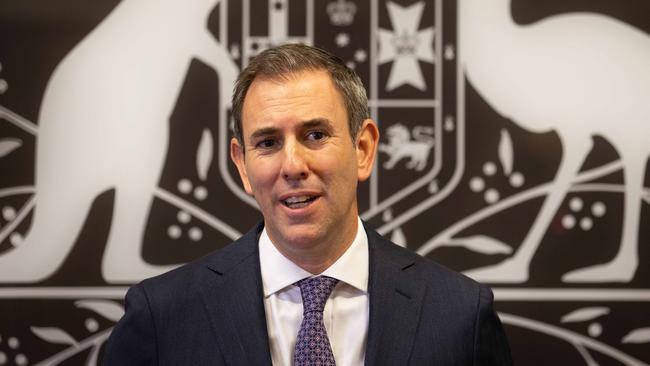
The mood in the American capital for the northern spring gathering of finance ministers and central bankers is reverting to grim, brought about by a monetary squeeze, financial fractures, rising living costs and what the International Monetary Fund has described as the dimmest prospects for growth in decades.
In its World Economic Outlook published this week, the IMF scaled back its projections of output growth, with the prognosis for wealthy nations especially bleak as some of the big players stumble towards recession. “Feeble and uneven” is the IMF’s shorthand for a rocky global recovery.
IMF director of research Pierre-Olivier Gourinchas says the world is “entering a perilous phase during which economic growth remains low by historical standards and financial risks have risen, yet inflation has not yet decisively turned the corner”.
Even before leaving Australia, the Treasurer was finessing a narrative about tricky global conditions that senior officials are finding almost impossible to read from the relative safety of Sydney and Canberra.
For obvious reasons, China is too vast, opaque and flighty in the pandemic era to call; the US Federal Reserve may yet come close to crunching the life out of America’s Main Street to slay inflation. As the guys who earn seven figures, colour their hair and stopped wearing ties a decade ago say, “all the risks are tilted to the downside”.
On Wednesday, Chalmers warned “the economic headwinds are worsening” after the IMF revealed the worst five years of growth since 1990 were in prospect. “Global conditions have become more complex and confronting than they were even a few months ago and Australia is not immune to these challenges,” he said.
Early in their tenure, our custodians come back from DC with a pumped-up Australian exceptionalism or an unshakeable sense of foreboding. In 2008, ahead of his first budget, Wayne Swan got a heads-up on the coming storm due to problems in the US housing market that months later would become the infarction of the global financial crisis.
Now, a polycrisis, a post-pandemic slow fracturing of relationships and conventions looms large. The IMF’s Gourinchas says “some of the more recent slowdown may also reflect more ominous forces”. These are the scarring impact of the pandemic; a slower pace of structural reforms as well as the rising threat of geoeconomic fragmentation leading to more trade tensions; less direct investment; and a slower pace of innovation and technology adoption across fragmented “blocs”.
As Treasury’s Kennedy has said, for a mid-sized trading nation like our own, expertly managing the risks of the disintegration in a global order that has benefited Australia immensely, while responding to the more difficult geostrategic situation, “will be a defining feature of the coming decade”.
Yet from the vantage of the global gloom, things look good on the surface in Australia. The jobless rate held steady at 3.5 per cent last month; officials will be doing everything they possibly can to keep the employment gains from the surge out of Covid lockdowns.
In fact, the Reserve Bank of Australia governor revealed after last week’s policy pause that the RBA board was prepared to tolerate a slower return to target of the inflation rate to achieve a historic win for the labour market. Lowe now says there’s an argument the RBA could try to get inflation to 3 per cent by the middle of next year, rather than mid-2025, “but it would mean more job losses”. In the run-up to the budget, just over three weeks away, we’ll see a fusion of grim and sunny Jim in the Treasurer’s mien, even in the same sound bite. “Our own economy will slow considerably, but in this environment you would rather be Australia than almost any other country,” Chalmers told Seven’s Sunrise after touching down in the US capital.
The 35 per cent of households with mortgages experiencing a severe shock to their finances, especially 900,000 borrowers rolling over ultra-cheap fixed-rate loans this year, would disagree. The RBA says required loan repayments will reach a new record high of almost 10 per cent of household disposable income by the end of 2024.
After Canada’s, our housing market is seen by the IMF as the most at risk of a “wave of defaults” in the developed world because of elevated house prices, high levels of household debt and rising variable mortgage rates. While other central banks continued to squeeze borrowers, Lowe said one of the reasons he was confident the RBA could wait and watch was because the average mortgage rate Australians paid had increased more quickly than in other countries.
In line with ALP national secretary Paul Erickson’s pep talk to Labor’s caucus when parliament resumed in February, the rhetorical framing of the May 9 budget will be around easing the cost of living – but not too much lest it ignite inflation. “Australians are under the pump,” says Chalmers, as bill shock, from almost every purchase, is voters’ top issue. Headline inflation may have peaked, but it’s not done with us. As always, Chalmers is facing numerous budget trade-offs; all signs are short-term politics will trump long-term economics.
How could they not?
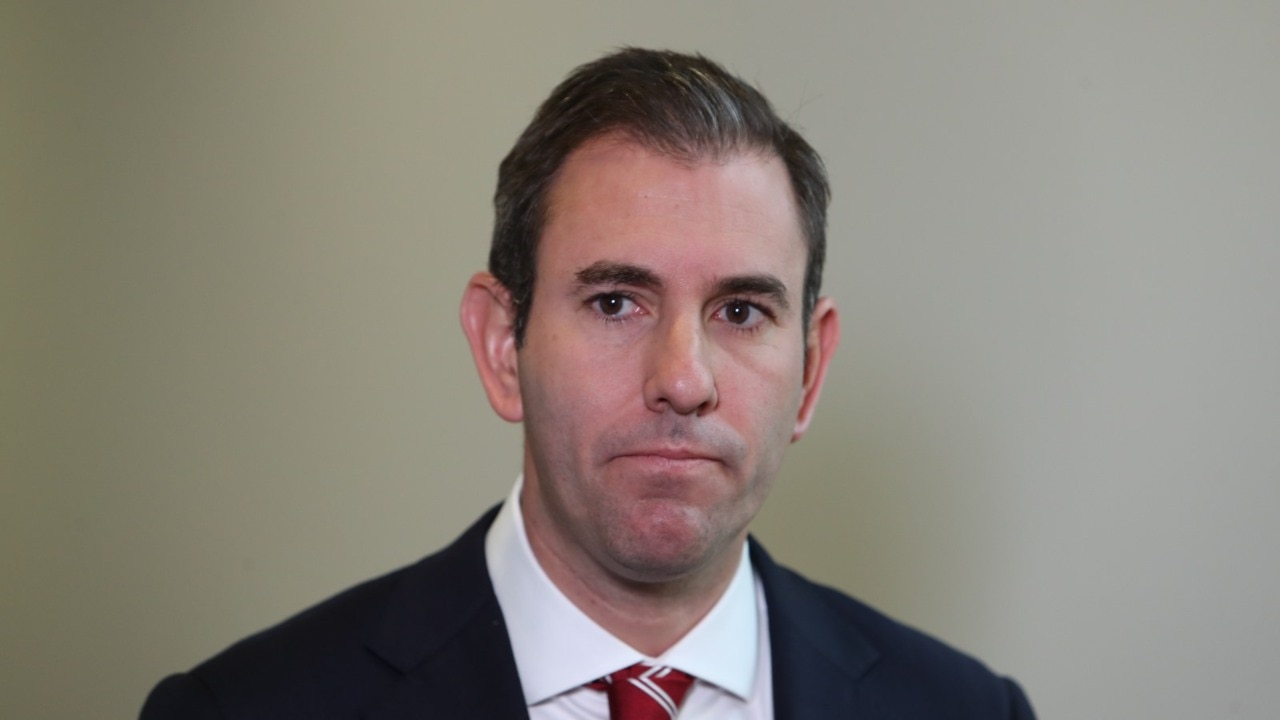
Remember Anthony Albanese’s election pitch this time last year? OK, there wasn’t much there, there, other than the Labor leader wouldn’t be the Bulldozer from the Shire; a skinny mandate to be sure and an even slimmer lower-house majority.
But the news isn’t all bad, hence some breathing space. Chalmers maintains the bump to revenue from stronger than expected export prices won’t be as helpful in his second budget as it was in his first, back in October, a warm-up act for the gruelling years ahead.
Stubborn inflation and swollen prices for gas and coal because of the Ukraine war have delivered a tax bonus that has produced a $20.5bn improvement in the budget’s bottom line in the first eight months of this financial year.
The Treasurer says he’ll be “banking most of the upward revisions that we see in the near-term”. Australia gets a world-leading big tick from the IMF for not spending these “revenue surprises”, along with Brazil, another commodity exporter that has benefited from the positive terms of trade shock.
Last year, according to the IMF’s latest Fiscal Monitor, Australia scored a revenue surprise worth almost 4 per cent of gross domestic product, spending one-quarter of it; that 3 per cent of GDP saving is equivalent to $70bn. The US, Britain, Germany and South Korea spent all their windfall revenues. But after the Covid debt binge, the multilateral lender urges wealthy countries to get their houses in order, sooner rather than later; revised fiscal rules are also important, the IMF says, after many countries found an escape hatch from them during the pandemic. As well, spending cuts are preferable to tax rises for long-term debt-stabilisation.
Will Chalmers take any of that advice, given his public disdain for the neoliberal Washington consensus in his manifesto?
The Treasurer would be wise to immediately “start the heavy lifting of budget repair”, according to Grattan Institute chief executive Danielle Wood. When money was cheap, the fanciful idea took hold, here and elsewhere, that growth alone would get us to a fiscal happy place, with debt stabilising, then falling, as inflation worked its magic.
In a searing pre-budget report, the Melbourne think tank has put forward a politically risky suite of spending cuts and chunky tax hikes to address the chronic budget deficit over the rest of the decade that most analysts agree is around 2 per cent of GDP a year or $50bn in today’s dollars.

The fiscal measures amount to a significant redistribution from wealthy boomers, retirees and high-income earners to millennials and Generation Z, the workers who will carry an ageing population into its splendid repose for decades. Wood knows how averse the political class is to, say, raising the GST to 15 per cent (and compensating the poor). Or taxing more equitably superannuation, capital gains and trusts, and trimming negative gearing and the stage three tax cuts. The institute’s costed revenue measures come in at a hefty $55bn a year, while the spending cuts are worth around one-third of that.
The Grattan chief argues we should avoid “the trap of thinking we can simply grow our way out of debt”. “None of these options is easy, but if the government is serious about budget repair it will need to embrace at least some of them,” she said.
In any case, Wood argues the structural deficit is even worse than the experts’ consensus. Using more realistic estimates of spending – including in defence, health and support for the vulnerable – the institute suggests it’s more than $70bn a year in today’s dollars by the end of the decade.
“Continually adding to national debt by running sizeable deficits asks future generations to foot part of the bill for today’s spending and may reduce the government’s room to respond to future shocks,” the report says.
Wood challenges Chalmers to act with urgency and courage, telling Inquirer Labor must make “a bold statement of intent in the budget”, as well as revive strict fiscal rules to achieve medium-term gains and promote discipline within the federal sphere.
Grattan is Labor’s go-to ideas factory, so Chalmers didn’t slam the report outright. He pointed to tweaks on multinational tax and the modest move to end tax lurks for the super-rich that alarmed many readers of this newspaper. Plainly, like his predecessors, the Treasurer is gun-shy on tax.
The government’s seasoned engine room, the top half-dozen scarred balladeers from the Rudd-Gillard murders, don’t want to see what is likely to be their last period in office turn nasty, brutish and short; their signature policies killed, buried and cremated when the previous tenants eventually move back in.
It’s true Labor faces a shell-shocked opposition and every instinct of the “lifers” is not to give the recently vanquished any traction. Hence, the safety-on gang that won’t shoot at all.
What this means is Labor’s overwhelming mindset is to win again – by delivering election promises, eliminating risk and making friends while pushing the blame back for today’s disorders as far back as it can.
The trite “trillion dollars of Liberal debt” line has run out of steam for non-partisans; the onus is on Labor to get on with the job of making its grander version of government fit into the budget envelope, keep the debt for future generations in check and rebuild financial firepower for the next crisis. Chalmers will soon reveal his policy mettle and mission.
“You try to get things in proper order, catch your breath, and then there’s another crisis,” a Canberra policy veteran tells Inquirer. “It’s only a matter of time. No rest. That’s the grind of governing.”
Eventually, the political doctor is going to have to level with an unfit, ageing patient losing muscle tone and impose a strict regimen.


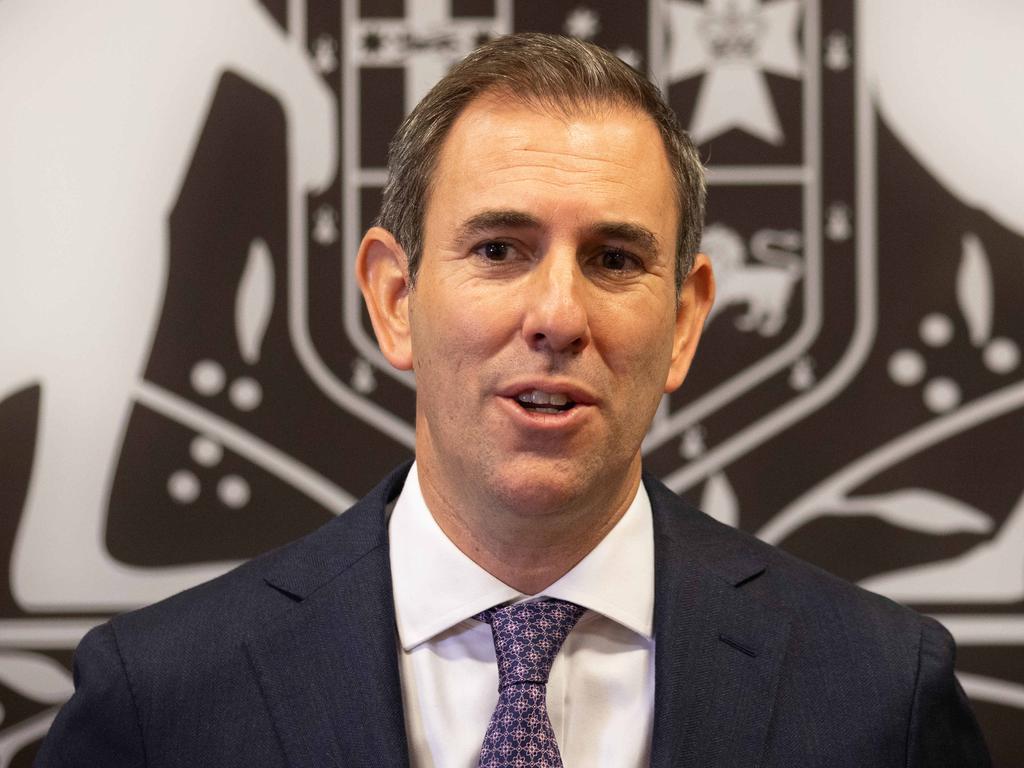

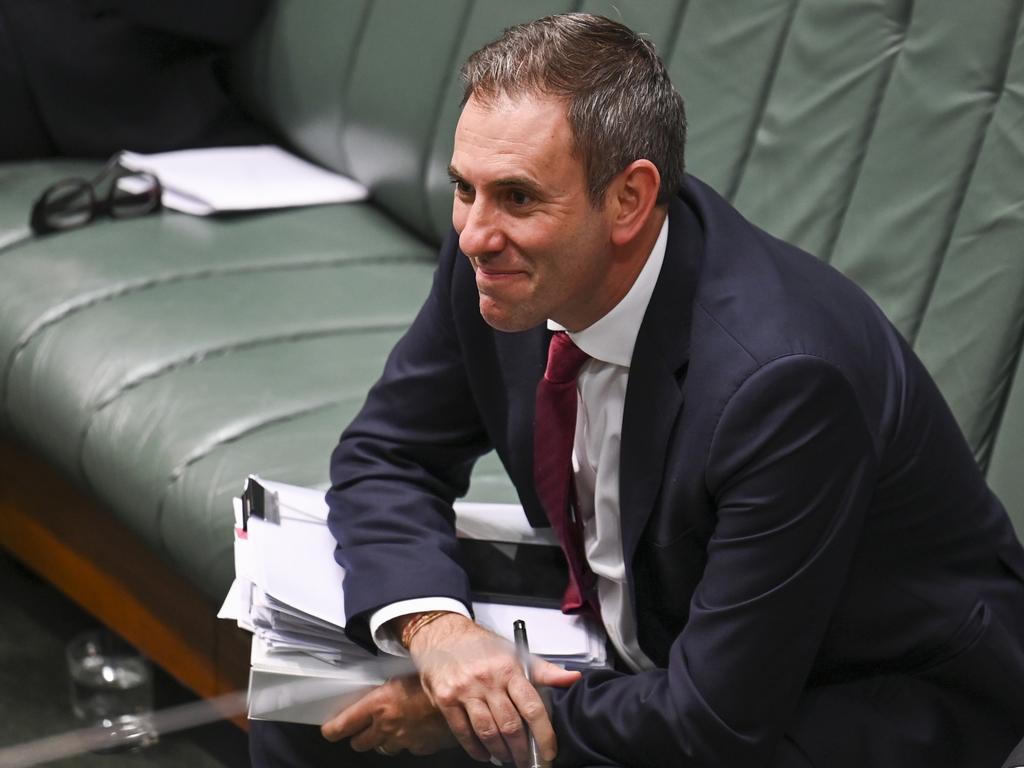
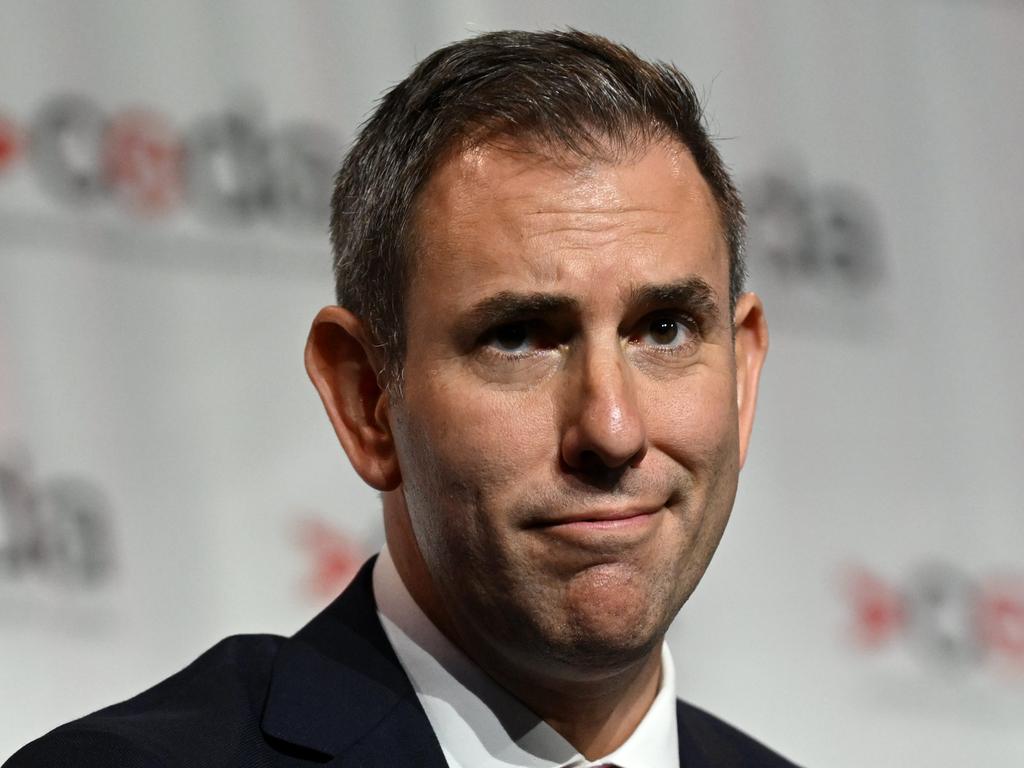


The three doctors ministering to the ailing Australian economy are in Washington this weekend to commune with their peers. Dr Jim Chalmers specialises in politics, Treasury secretary Dr Steven Kennedy does taxing and spending, and Dr Philip Lowe works the interest-rate rack. The long-suffering patient is down but not out.